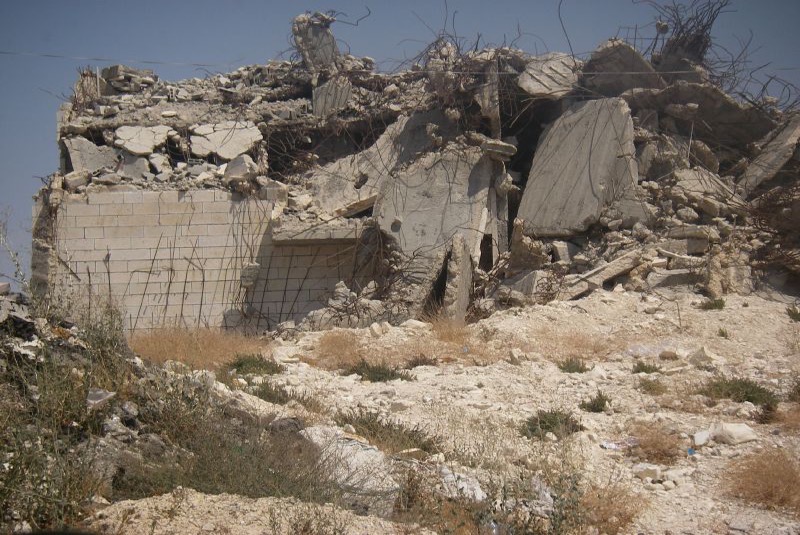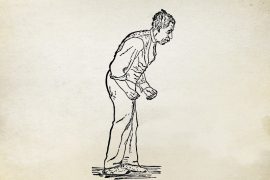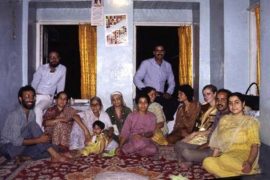The Israeli bombardment of Gaza following the Hamas attack on southern Israel on October 7 has forced hundreds of thousands of Palestinians out of their homes. At least 43 per cent of all housing units in the Gaza Strip have been either destroyed or damaged since the start of the hostilities, according to the Ministry of Public Works and Housing in Gaza.
Israel says that 1,400 people were killed in the Hamas attack on Israel, and more than 220 were taken hostage. Meanwhile, according to the health authorities in Hamas-run Gaza, more than 6,500 people have been killed in Israeli air strikes and more than 17,400 injured.
There is a modern term for what’s happening in Gaza. Domicide refers to the deliberate destruction of home, or the killing of the city or home. It comes from the Latin word domus which means home and cide, which is deliberate killing.
But, home here doesn’t only mean the physical, tangible built environment of people’s homes and properties. It also refers to people’s sense of belonging and identity. We are seeing in many conflicts and wars across the world that alongside the destruction of architecture, people’s sense of dignity and belonging is also being targeted.
There is a link between genocide and domicide: genocide refers to the killing of people, and domicide to the erasure of their presence and their material culture. In 2022, a UN expert on housing argued that domicide should be recognised as an international crime.
When people are continuously displaced from their homes, sometimes for decades, or even a lifetime, there’s a sense of grief and sorrow that their history is being erased.
The destruction of Homs
My home city of Homs, Syria, which I focus on in my research, has been completely transformed since the 2011 uprising against the government of Bashar al-Assad.
Over 50 per cent of the neighbourhoods have been heavily destroyed, and over a quarter partially destroyed. Across the country, more than 12 million Syrians have been displaced from their homes. Of these, 6.8 million people are displaced inside the country, and 5.4 million people live as refugees in neighbouring countries and beyond.
Domicidal campaigns like this also work to erase evidence that a community actually existed in a particular place and that it had a history and culture there. This is an attempt to write people out of history through destroying their homes and heritage in a way that’s systematic and deliberate.
In Homs, for example, whole neighbourhoods that opposed the Assad regime were targeted and razed to the ground. In other cities, such as Damascus and Hama, entire neighbourhoods were wiped out through new land and property laws, which designate these neighbourhoods as “informal”.
Domicide in Gaza
There is no need to compare Homs and Gaza, as each place has its own context and struggle. But I’ve been following the news continuously since the Hamas attack on Israel, and I can’t stop looking at the updates about the heavy Israeli bombing. The scale of destruction, the level of mass displacement is just so heartbreaking. Gaza has been described as an open prison, and people in that open prison have been pushed away from their homes.
Israel says it has the right to defend itself, and is targeting Hamas positions, but the scale to which ordinary people’s homes, hospitals and “safe areas” have been hit means what’s happening in Gaza is absolutely domicidal. People living in the north of the Gaza Strip were told by Israeli authorities to move to the south of the territory to the supposed “safe areas”, but the southern areas continue to be bombed too. The bombardment is killing civilians, killing their everyday lives and causing the mass destruction of neighbourhoods. As we have seen in videos, entire buildings have been levelled.
Israeli-British historian Avi Shlaim, an emeritus fellow at the University of Oxford, who was born in Baghdad, and is considered one of Israel’s critical “new historians”, called Israel’s actions “state-sponsored terrorism”. Raz Segal, an Israeli historian, wrote: “Israel’s genocidal assault on Gaza is quite explicit, open, and unashamed.” Others argue vehemently against any moral equivalence with the Hamas attacks.
Catastrophe for Palestinians
It’s not the first time that Palestinians in Gaza have had their homes destroyed. Many of the Palestinians who live in Gaza are people who have been displaced before. This is why many academics, activists, journalists and even Queen Rania Al Abdullah of Jordan, call for context, for situating the Palestinian struggle within a history of suffering, dispossession and forced displacement since the Nakba (catastrophe) in 1948.
When one million people are ordered to leave their homes it’s important to understand that these people have attachment to their places, to their neighbourhoods, to their streets. The impact of displacement and loss of home can live with people for their lifetime.
In my interviews with people from the city of Homs, I’ve heard many people say that even if they are still living in Homs, they feel like strangers in their own city, or they feel exiled inside their own city.
For people such as the Palestinian diaspora or the Iraqi diaspora or the Syrian diaspora who are unable to return to their home countries, that suffering and pain and trauma of displacement continues.
I imagine people have different mechanisms to cope with these traumatic events, but that’s why it’s so important to have memory projects where people at least can reflect on what happened to heal and grieve, even when, sadly, many are unable to return, and some spend their lifetime in exile.
After researching conflicts, wars, dictatorships and occupations for several years, I always say that the pain of people starts as a headline in the news media and turns into a footnote in history. Let us resist that. Let us remember the life of every human being and keep the struggle for a free and just world for everyone.
This story was first published in The Conversation.
-30-
Copyright©Madras Courier, All Rights Reserved. You may share using our article tools. Please don't cut articles from madrascourier.com and redistribute by email, post to the web, mobile phone or social media.Please send in your feed back and comments to [email protected]











